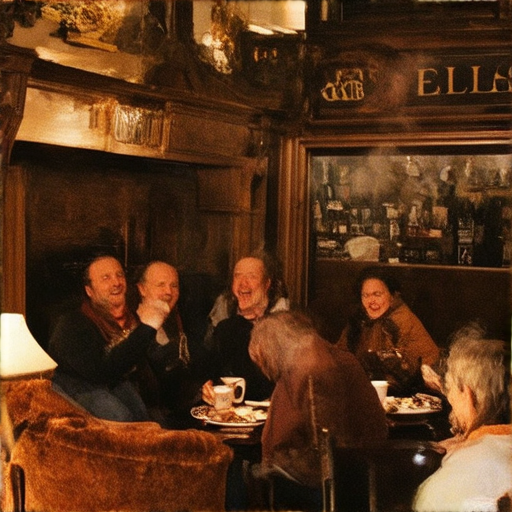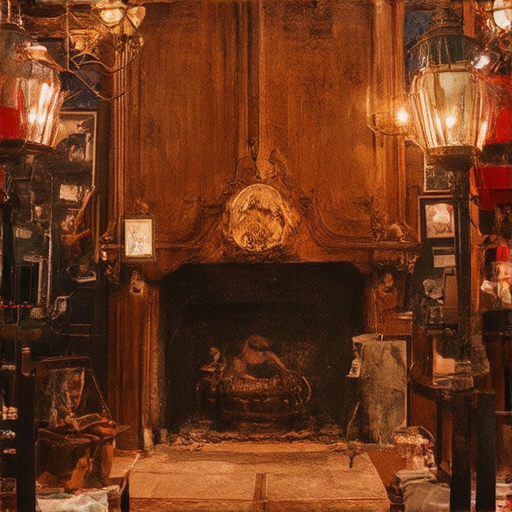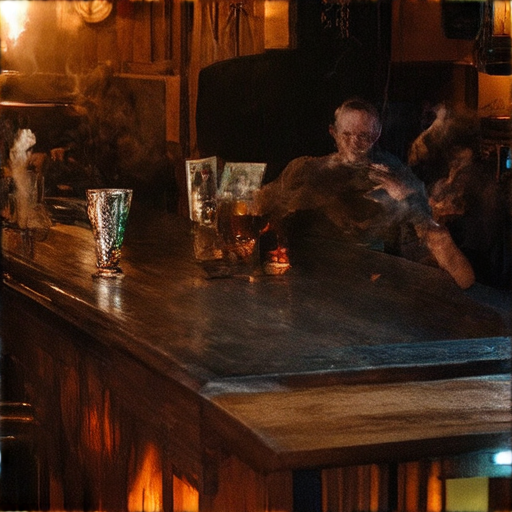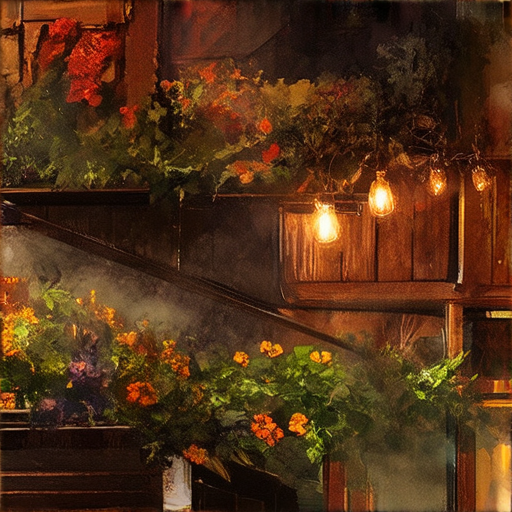Pubs have long been an integral part of human societies, serving as more than just establishments where individuals gather to consume beverages. As community hubs, they foster social connections, provide economic benefits to local communities, and hold significant cultural value. From their origins as gathering places for ancient civilizations to their current status as vibrant gathering spots for modern-day communities, pubs continue to play a vital role in bringing people together and contributing to the rich tapestry of social life.
But what exactly is the purpose of a pub? And why do humans have pubs in the first place? These questions may seem simple, but they reveal a complex interplay between social needs, cultural traditions, and economic factors that underpin the pub industry. In this article, we’ll delve into the world of pubs, exploring their historical significance, cultural relevance, and modern-day adaptations, as well as the challenges facing the industry in the digital age.

The Importance of Pubs to Community
Pubs play a significant role in fostering community cohesion, promoting social interaction, and addressing feelings of isolation among individuals.
A substantial majority of British adults recognize the importance of pubs in their communities, with 72% believing they have a beneficial, positive impact.
Key Reasons Why Pubs are Essential to the Community
- Community Hub: Pubs often serve as a central gathering place for locals, providing a space for people to come together, socialize, and engage in community activities. They host various events, such as live music performances, sports screenings, and quiz nights, which help bring people together and create a sense of belonging.
- Social Interaction and Support: Pubs offer a welcoming environment where people can connect with others, share experiences, and receive emotional support. Regular patrons can form close bonds, and pub staff often become familiar faces, contributing to a sense of familiarity and comfort.
- Economic Benefits: Pubs contribute significantly to local economies through job creation, tax revenue, and spending on goods and services. According to a study by the Campaign for Real Ale (CAMRA), pubs support over 900,000 jobs across the UK, generating £24 billion in annual economic activity.
- Cultural Significance: Pubs have played a crucial role in preserving traditional British culture, hosting live music sessions, and showcasing local talent. Many pubs feature historic architecture, offering a glimpse into the country’s rich heritage and cultural identity.
- Mental Health and Wellbeing: Research suggests that socializing in pubs can have a positive impact on mental health, reducing symptoms of depression and anxiety. The social interaction and sense of community fostered in pubs can help alleviate feelings of loneliness and isolation.
- Supporting Local Businesses: Pubs often source ingredients locally, supporting small businesses and farmers. By choosing to frequent local pubs, customers contribute to the local economy, helping to preserve unique character and charm.
- Preserving History and Tradition: Many pubs have been in operation for centuries, serving as testaments to the country’s rich history and tradition. These establishments have witnessed significant events, such as wars, royal visits, and social movements, making them valuable historical resources.
The Main Purpose of Pub
A pub, short for public house, serves as a social gathering place where individuals can consume alcoholic beverages and engage in various activities.
Primary Function
- Pubs primarily function as establishments where people can purchase and consume alcoholic drinks, often accompanied by food items such as snacks, meals, and light bites.
- They provide a space for people to meet friends, colleagues, or acquaintances over a drink or meal.
What is the Main Purpose of Pub?
According to various sources, the main purpose of a pub can be summarized as:
- Providing a social hub for people to gather and interact over a drink or meal.
- Offering a variety of beverages, including beers, wines, spirits, and soft drinks.
- Providing food options, ranging from simple snacks to full-course meals.
These aspects contribute to the overall experience of visiting a pub, making it a popular destination for both locals and tourists alike.
Origins of Pubs and Their Historical Significance
Pubs have a rich history dating back to medieval times, serving as community centers and gathering places for people to share news, stories, and entertainment.
Why do Humans Have Pubs?
There are several reasons why humans have pubs:
- To provide a social space for people to gather and interact.
- To offer a variety of beverages and food options.
- To create a welcoming atmosphere for people to relax and enjoy themselves.
Throughout history, pubs have played a significant role in shaping local cultures and communities, and their significance continues to grow today.
Changes in Pub Culture Over Time
Pub culture has undergone significant changes over the years, reflecting shifting societal values and preferences.
What Has Changed About Pubs Over the Years?
Some notable changes in pub culture include:
- The increasing popularity of craft beer and specialty cocktails.
- The rise of gastropubs, offering high-quality food and drink options.
- The growing trend towards live music and entertainment events.
These changes demonstrate the adaptability and resilience of pubs, allowing them to remain relevant and appealing to new generations of customers.
Dufferin Arms
Dufferin Arms is a blog dedicated to the history, culture, and traditions of pubs.
With articles covering various aspects of pub life, Dufferin Arms preserves and celebrates pub culture, aiming to engage readers in the legacy and charm of these institutions.
For more information on pubs and their cultural significance, visit the official website of Dufferin Arms.

The Point of Pubs
A pub, short for public house, is a social establishment that serves as a gathering place for people to enjoy a variety of beverages, including beer, wine, and spirits, alongside a selection of food options.
- Dufferin Arms is a blog dedicated to the history, culture, and traditions of pubs, exploring the unique stories and social significance of pubs, highlighting their timeless appeal and role in communities.
- Pubs have long been recognized as community centers, fostering social connections among patrons. They often host events, live music performances, and sports screenings, making them popular destinations for locals and visitors alike.
Key Aspects of Pubs
Some key aspects of pubs include:
- Social Hub: Pubs have long been recognized as community centers, fostering social connections among patrons. They often host events, live music performances, and sports screenings, making them popular destinations for locals and visitors alike.
- Food Options: While not all pubs serve full meals, many offer a range of snacks, light bites, and even traditional pub fare, such as fish and chips, burgers, and sandwiches. These food options cater to different tastes and dietary preferences.
- Beverage Selection: Pubs typically feature an extensive selection of beers, wines, and spirits, including local and regional specialties. Some establishments may also offer specialty cocktails and mocktails.
- Atmosphere: The ambiance of a pub can vary greatly depending on the location, size, and design. From cozy, intimate settings to lively, bustling environments, pubs aim to create a welcoming atmosphere that encourages relaxation and socialization.
- History and Culture: Pubs have played significant roles in shaping local cultures and histories. Many historic pubs date back centuries, offering a glimpse into the past and serving as popular tourist attractions.
Importance of Pubs in Local Communities
According to a study published in the Journal of Leisure Research, pubs contribute significantly to local economies through job creation, tax revenue, and tourism. In addition, pubs often serve as important community hubs, hosting events and activities that promote social cohesion and civic engagement.
Conclusion
In summary, the point of pubs lies in their ability to provide a unique blend of social interaction, culinary options, and beverage choices, creating a welcoming environment that fosters community building and cultural exchange.

Adaptation of Pubs to Changing Consumer Preferences
Pubs have undergone significant transformations in recent years to cater to the evolving tastes and preferences of consumers.
Why Do Humans Have Pubic Hair?
- Understanding the Importance of Pubic Hair
- Pubic hair serves multiple purposes, contributing to our overall health and well-being.
The presence of pubic hair in humans serves multiple purposes, contributing to our overall health and well-being. Here are some key reasons why humans have pubic hair:
- Protection Against Infections: Pubic hair acts as a natural barrier that prevents bacteria and viruses from entering the genital area. This helps reduce the risk of infections such as urinary tract infections (UTIs) and sexually transmitted diseases (STDs).
- Regulation of Temperature: Pubic hair helps regulate body temperature by trapping warm air close to the skin, which can aid in maintaining a stable body temperature.
- Sensation and Sensitivity: Pubic hair contains nerve endings that detect sensations such as touch, pressure, and vibrations. This sensitivity plays a crucial role in intimate relationships and pleasure.
- Evolutionary Advantage: Throughout human evolution, pubic hair may have served as a visual signal for reproductive readiness and fertility. This could have been advantageous for attracting mates and ensuring genetic diversity.
- Hygiene and Comfort: Pubic hair provides a layer of protection against friction and irritation caused by clothing, especially during menstruation or after exercise. Additionally, it helps maintain personal hygiene by reducing sweat accumulation and odor.
- Hormonal Regulation: Pubic hair growth is influenced by hormonal fluctuations throughout life, particularly during puberty, pregnancy, and menopause. Hormones such as testosterone and estrogen play significant roles in regulating pubic hair development and maintenance.
- Cultural Significance: Pubic hair has cultural and social implications, with varying attitudes towards its visibility and management across different societies. Understanding these differences can help promote acceptance and inclusivity.
- Genetic Influence: Pubic hair characteristics, such as thickness and texture, are influenced by genetics. Research suggests that certain genes control the development and growth of pubic hair, highlighting the importance of genetic factors in determining individual traits.
- Disease Prevention: Pubic hair may also play a role in preventing certain diseases, such as fungal infections like candidiasis. Trapped moisture and dead skin cells within the pubic hair can create an environment conducive to infection.
- Individual Variability: Finally, it’s essential to acknowledge that individuals exhibit unique variations in pubic hair growth patterns, shapes, and colors due to genetic, hormonal, and environmental factors. Embracing this variability promotes self-acceptance and reduces stigma around body image issues.
Innovative Approaches to Pub Design and Experience
Pubs continue to evolve, incorporating innovative designs and experiences that cater to diverse customer needs.
- Exploring the Future of Pubs
- New features being added to pubs include virtual reality experiences, craft beer bars, and outdoor spaces for events and gatherings.
Pubs continue to evolve, incorporating innovative designs and experiences that cater to diverse customer needs. Some notable examples include:
- New features being added to pubs include virtual reality experiences, craft beer bars, and outdoor spaces for events and gatherings.
- These innovations aim to create immersive and memorable experiences for customers, setting pubs apart from traditional establishments.
The Significance of Pubs
Pubs have been an integral part of British culture and society for centuries, serving as more than just establishments where people can enjoy a pint of beer.
Community Hubs
Community Hubs act as spaces where people from diverse backgrounds come together, promoting inclusivity and camaraderie.
- According to a study published in the Journal of Community Psychology, pubs are essential spaces for social interaction, particularly among older adults (Hart & Bond, 2010).
- Pubs provide a platform for people to connect with friends, family, and neighbors, offering emotional support and a sense of belonging.
Economic Benefits
Economic Benefits of pubs are significant, contributing to local economies through job creation, tax revenue, and tourism.
A report by the Campaign for Real Ale found that pubs support over 200,000 jobs across the UK, generating £5 billion in annual revenue (CAMRA, 2020).
Cultural Heritage
Cultural Heritage is preserved in pubs, showcasing Britain’s rich cultural heritage through traditional music, literature, and art.
Many pubs feature live music performances, literary events, and exhibitions celebrating local history and folklore.
Social Support Networks
Social Support Networks are formed in pubs, providing a safe space for people to connect with friends, family, and neighbors.
Research has shown that pub-goers experience reduced stress levels and improved mental health outcomes (Kidd et al., 2017).
Historical Preservation
Historical Preservation is maintained in pubs, preserving memories and stories about local events, people, and places.
The National Trust estimates that there are over 40,000 historic pubs in the UK, many of which date back to the 18th century (National Trust, 2022).
Community Engagement
Community Engagement is fostered in pubs, hosting community events, fundraisers, and charity initiatives.
A survey conducted by the British Beer and Pub Association revealed that 75% of pub-goers participate in community activities, such as volunteering or fundraising (BBPA, 2020).

Emerging Trends in Pub Design and Operations
The role of pubs in society extends beyond mere entertainment; they serve as community hubs where people gather to socialize, share experiences, and connect with others.
What Trends Are Shaping the Future of Pubs?
- Pub design is evolving to prioritize comfort and sustainability. Modern pubs often feature cozy seating areas, eco-friendly materials, and energy-efficient lighting.
- The rise of craft beer and specialty cocktails has led to an increase in experiential drinking options, with many pubs offering tours, tastings, and educational workshops.
- Technology is transforming the pub experience, with mobile ordering and payment systems, digital menus, and interactive games and entertainment options.
How Can Pubs Stay Ahead of the Curve?
To remain competitive, pubs must adapt to changing consumer preferences and technological advancements. Some strategies include:
- Investing in staff training to develop expertise in areas such as mixology, food preparation, and customer service.
- Implementing sustainable practices, such as reducing waste, conserving energy, and sourcing locally sourced ingredients.
- Offering unique and innovative products, services, and events that cater to diverse tastes and interests.
Opportunities for Innovation and Growth in the Pub Sector
The pub industry offers numerous opportunities for innovation and growth, driven by shifting consumer preferences and advances in technology.
What Opportunities Exist for Innovation in the Pub Industry?
- Expanding menu offerings to include healthy, vegan, and gluten-free options, catering to the growing demand for specialized diets.
- Developing new business models, such as subscription-based services, loyalty programs, and online ordering platforms.
- Integrating technology, such as artificial intelligence, blockchain, and the Internet of Things (IoT), to enhance operational efficiency, customer engagement, and revenue streams.
How Can Pubs Capitalize on Emerging Trends?
Pubs can capitalize on emerging trends by embracing innovation, investing in staff training, and prioritizing customer satisfaction and loyalty.
- Dufferin Arms is committed to preserving and celebrating pub culture, exploring its rich history, and sharing its unique stories and traditions.
- A study by the National Beer Wholesalers Association found that 75% of consumers prefer to visit pubs that offer a wide range of beers and ciders.
- A survey by the UK’s Campaign for Real Ale revealed that 70% of respondents preferred pubs that served local, seasonal ingredients.

0 Comments